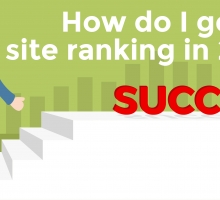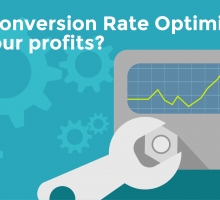From Panda to Penguin, Hummingbird to Pigeon, Google has launched a whole flock of algorithm updates with the aim of making the internet an easier place to explore and find things. And, as everyone starts to accept user intent is at the heart of everything Google does, some people have began questioning whether SEO is needed at all. After all, if you consider what the user wants you should be able to put together a decent online strategy, not to mention some great content for your site.
To SEO or not to SEO is the question a lot of new businesses or companies moving online for the first time find themselves asking. It’s not a conundrum that’s exclusive to this group either; in a brand-laden space some businesses are querying whether they would be better off trading on their brand alone. If people are searching for your business specifically, why would you need SEO? These are the questions we’ll be answering on the blog today as we outline why you still need SEO, whatever the size of your business.
Google thinks SEO may help you
“Deciding to hire an SEO is a big decision that can potentially improve your site and save time”, that’s not something we wrote ourselves, though we definitely agree with the statement, it’s actually a quote from Google Webmaster tools. You can read all the advice from Google on this particular topic here but another snippet we particularly agree with is this one: “If you’re thinking about hiring an SEO, the earlier the better”.
Aside from being enthusiastic SEO professionals who want to work with interesting clients, the statement resonates so strongly with the team here at High Impact because we know from experience that adopting SEO from the beginning gets you off on the right foot and can save you a lot of work later on. Having the help of someone who understands search engines and how they work means you build and format your site in a way that allows search engines to read it easily, making your brand and your products and services more visible.
SEO helps your customers find you
You wouldn’t build a shop or restaurant and neglect to put a sign outside displaying your business name and telling people what you do or sell. If you were setting up a bricks and mortar business you’d likely do a few other things too – maybe hand some flyers out in the local area, hold a launch event, put up some signs pointing to your new premises.  SEO is the online equivalent of these actions, whether your business is eCommerce or want to drive enquiries, if you’re online you need to signpost correctly. From helping you build your site architecture in a way that makes sense to search engines and customers, through to writing engaging meta descriptions that reassure your customer you have what they were searching for, SEO signposts your business. SEO helps the user on their journey and ultimately assists them in finding the thing they were looking for.
SEO is the online equivalent of these actions, whether your business is eCommerce or want to drive enquiries, if you’re online you need to signpost correctly. From helping you build your site architecture in a way that makes sense to search engines and customers, through to writing engaging meta descriptions that reassure your customer you have what they were searching for, SEO signposts your business. SEO helps the user on their journey and ultimately assists them in finding the thing they were looking for.
By the way, if you do have a restaurant or shop, you should make sure you have your local SEO covered so that you don’t miss out on business from relevant searchers in your area. In short, SEO aims to satisfy the customer as much as the search engines and that’s why it’s still very much needed.
What about if a customer is searching for your brand directly? Searching for your brand or company name means there’s an existing relationship but that doesn’t eradicate the need for SEO. SEO can actually help you grow that relationship by ensuring you’ve got the content, site structure and products to satisfy their search queries and it’ll help you reach new customers too.
SEO helps you understand your customer
Wouldn’t it be great if you knew what had brought each customer to your restaurant or shoe shop? If you knew what specific item on the menu or in your window had lured them in. You can look at your sales figures and you’ll know what they did or didn’t buy, but what if they’d changed their decision because of stock levels or you could have sold them additional products?
 While ‘not provided’ has made it harder to know the exact search queries that have brought customers to your site there is still a world of data and information that comes out of doing SEO. You can use this information to improve service and make informed decisions about stock purchase, helping you make buying decisions. Whether it’s looking at where visitors landed or processing what they searched for on site, the data yielded can be used to help the full span of your buying funnel. Thorough in-depth keyword research can help you anticipate user intent and create content that satisfies search queries, building trust and raising your brand profile. Equally, knowing what people are searching for on your site might influence you to review your site architecture or to expand a particular product line.
While ‘not provided’ has made it harder to know the exact search queries that have brought customers to your site there is still a world of data and information that comes out of doing SEO. You can use this information to improve service and make informed decisions about stock purchase, helping you make buying decisions. Whether it’s looking at where visitors landed or processing what they searched for on site, the data yielded can be used to help the full span of your buying funnel. Thorough in-depth keyword research can help you anticipate user intent and create content that satisfies search queries, building trust and raising your brand profile. Equally, knowing what people are searching for on your site might influence you to review your site architecture or to expand a particular product line.
Working with SEO professionals can provide valuable marketing insights for your business and if you’re thinking of expanding into new markets, territories or services, SEO offers the means to give you the edge by identifying gaps or getting a gauge of the competition through an SEO competitor audit.
SEO is measurable and supports other marketing strategies
One of the things that clients who have decided to try SEO like is its measurability. It may sometimes take a few weeks to kick in but the benefit of adding quality content to your site or starting a campaign to gain more inbound links can be seen clearly in the rankings and while it’s impossible to say you need to put X amount of pounds in to secure a particular ranking position, you can measure your return on investment through traffic increases and sales that convert. The key thing being that good SEO should produce an increase in conversions because it ensures you satisfy search queries – bringing you the right users who are reassured that you have what they need and who then go on to make a purchase or enquiry.
We often have customers who are running PPC campaigns ask what the benefit of adding SEO to their marketing mix would be. When it comes to online marketing, we don’t really believe in a one or the other approach and PPC can be used well to support SEO and vice versa. Paid search tends to act more like an advert for your brand and product whereas SEO helps establish trust with users. If they’ve selected you from the SERPs based on your meta description which shows your page will seemingly answer their query, you’re already on your way to building a relationship with them. Then of course, there’s the fact that a far larger majority of people select organic search results rather than paid ones.
SEO activities also complement social media presence and general outreach – helping you to create and promote content that users are looking for, boosting brand awareness through collaborations with bloggers, publications and influencers and all of this for the single cost of an SEO campaign. If you are considering adding SEO to your marketing mix, it’s important to realise SEO is not a one-off project like redecorating. To maintain results you need to be committed to techniques like content development and linkbuilding through outreach on a long-term basis. Though as outlined, these activities in themselves often provide additional benefits for your business, making SEO far more of an investment than a cost.




